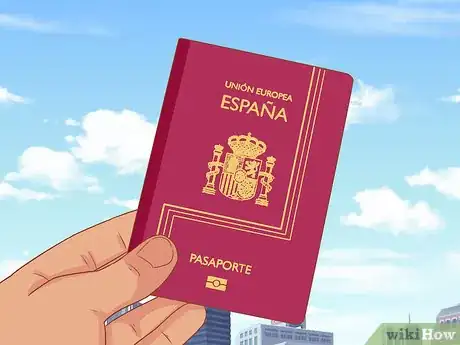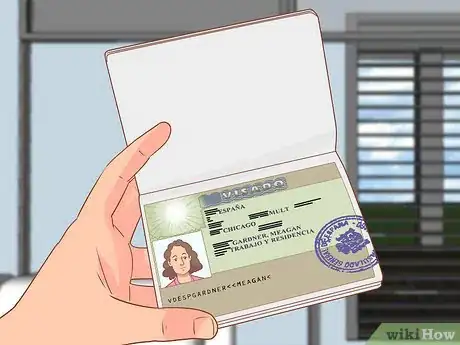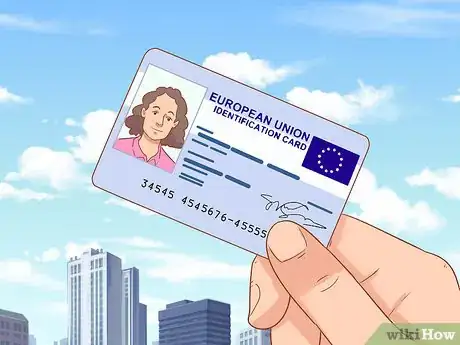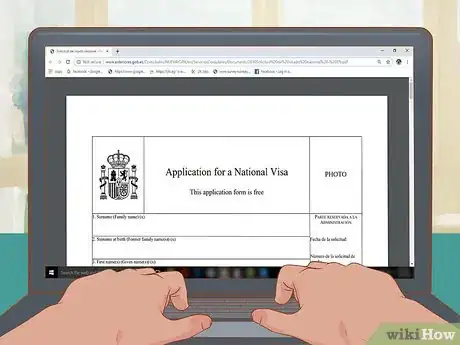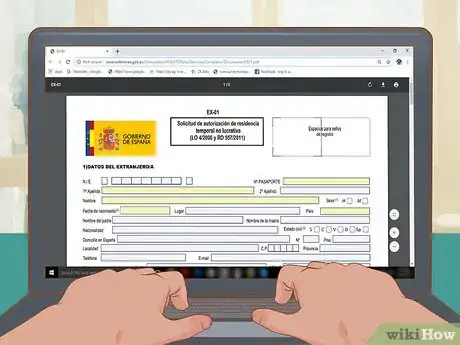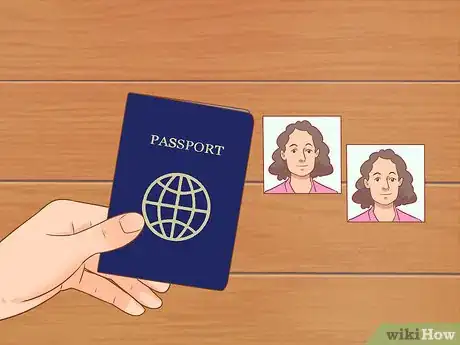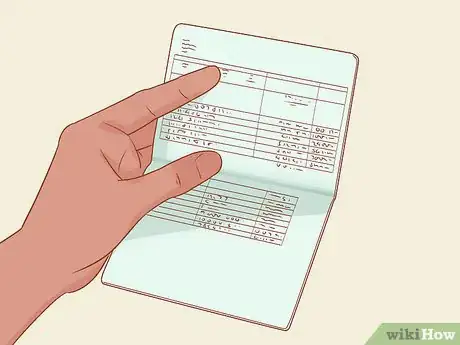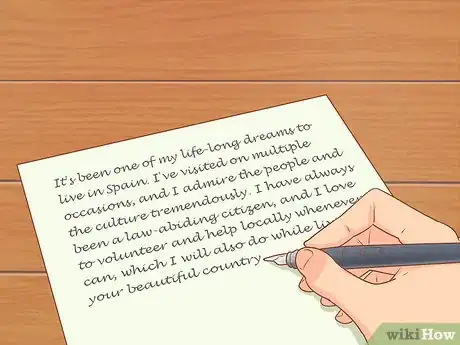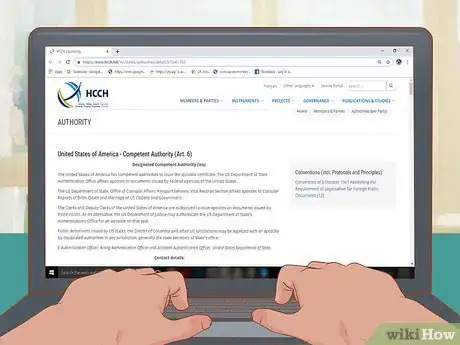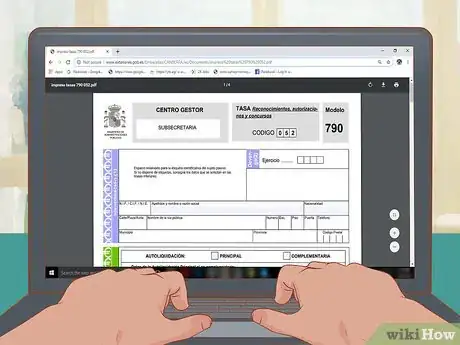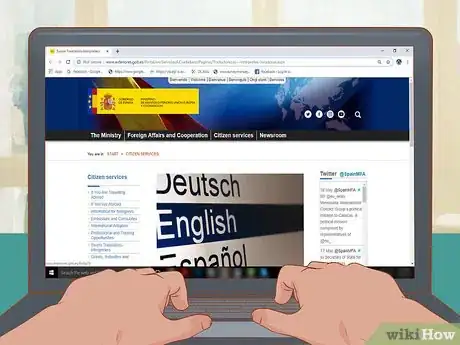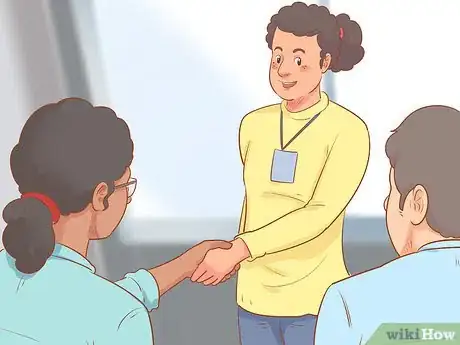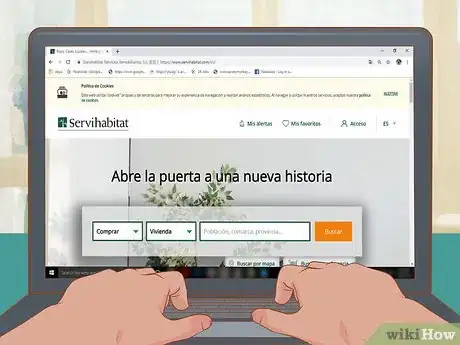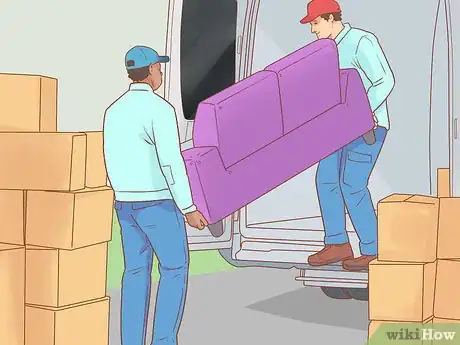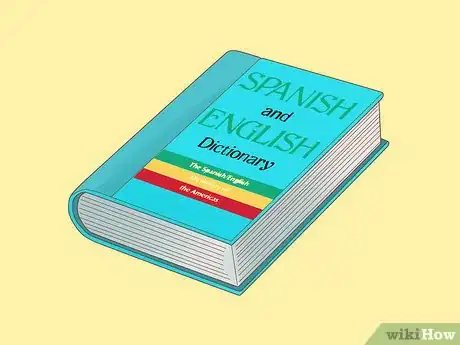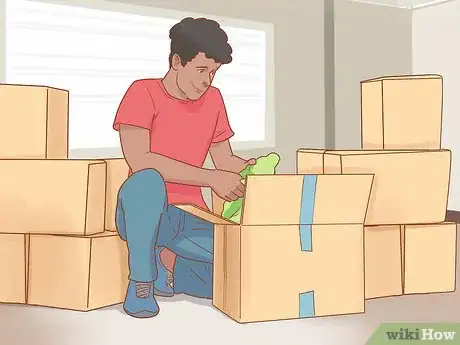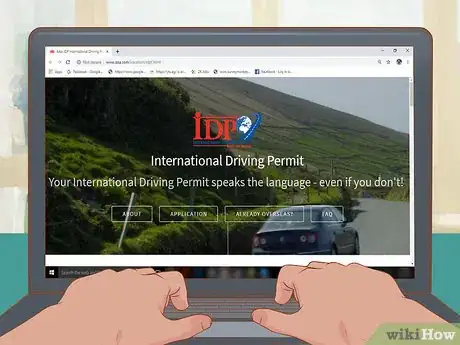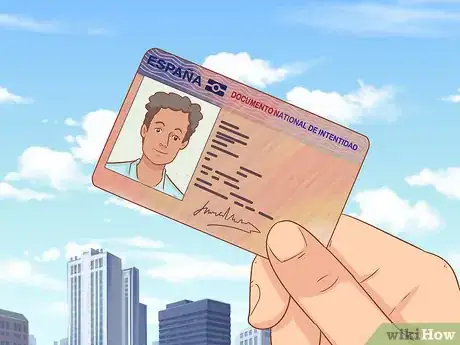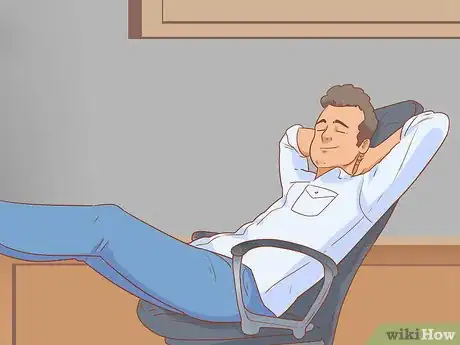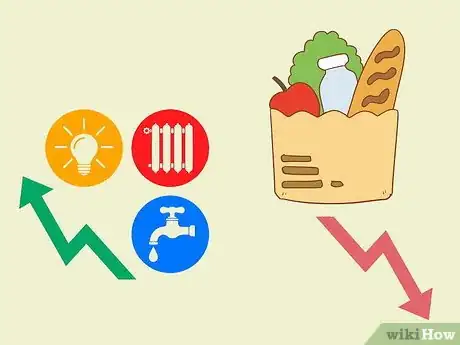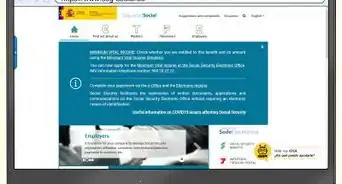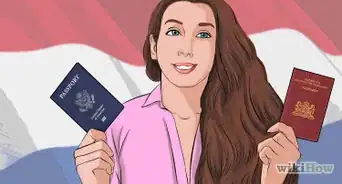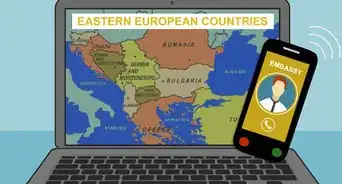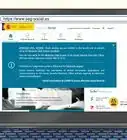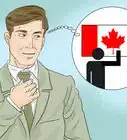This article was co-authored by Zach Pontrello. Zach Pontrello is an Embodied Leadership & Relationship Coach and the Founder of One Thought Growth & Sovereign Man Academy. His expertise lies in helping people build better relationships with themselves and with their partners, focusing on communication and honesty. Zach received his degree from John Carroll University.
There are 12 references cited in this article, which can be found at the bottom of the page.
This article has been viewed 149,991 times.
Moving to Spain can be an exciting and life-changing experience! Like most countries, Spain has a complex immigration process, and you must apply for a visa through your local Spanish consulate if you plan to move there. However, once you get that out of the way, you can pick a beautiful small town or a bustling large city to settle down in while you find your way around your new country.
Steps
Applying for a Visa
-
1Find an employer in Spain willing to sponsor a work visa. Look for work in Spain online prior to moving or in person once you’ve arrived or are there to visit. If you're from the U.S., you can stay in the country for 3 months without a special visa.[1]
- If you're from another country, you may need to apply for a travel visa. Check your local Spanish consulate to find out more.
- The job market in Spain is fairly competitive, so you must pick an industry that is need of workers. The retail and food industry is often in need of skilled workers. You can also find work teaching a foreign language, such as English, and technical jobs are also in demand.
- Because there are fierce regulations guiding employment of non-EU citizens, it may be difficult to find an employer who will sponsor you.[2]
- To see an up-to-date list of in-demand jobs in Spanish, check http://www.sepe.es/.
-
2Use a Non-Lucrative Residence Visa if you're from a non-EU country and can support yourself financially. This visa allows you to live as a long-term resident in Spain without citizenship. As long as you can prove you have the money to remain in Spain without employment, the country will usually allow you to renew it.
- To stay in Spain under temporary residency, you must be able to sustain yourself. That means you either have enough money in the bank already to support yourself or that you are self-employed or independently wealthy.
- You must show you have at least 25,560 Euros a year in income for the time you will be in Spain, as well as an extra 6,390 Euros for each person besides yourself. Keep in mind that these numbers can change over time.
Advertisement -
3Enter as an EU citizen member to stay without a visa. If you are a citizen of an EU country, you don't need a long-term visa to stay in Spain. You can live and work in Spain, as these countries have free movement agreements.
- This rule also applies to citizens from Iceland, Liechtenstein, Norway, and Switzerland.
-
4Fill in the appropriate visa form. Add biographical information, information on your passport, your flight itinerary, and your current address. You will also need to add information on your Spanish address if you have one; if you don't, put in the city and region you plan to live in. The form will ask you questions about your family, your reason for entering, and the type of visa you're applying for.
- You can obtain a form from your local consulate, which will help you figure out the best one to use. Otherwise, you can use this form in English with most English-based consulates: http://www.exteriores.gob.es/Consulados/NUEVAYORK/en/ServiciosConsulares/Documents/2010Solicitud%20de%20visado%20nacional%20-%20EN.pdf.
- You can also move to Spain with a student visa.
-
5Complete the EX-01 form for all visas. This form is primarily in Spanish, but you can find directions on the second page. It's a short form that asks for basic biographical information, such as your address, email, marital status, and cell phone number. Find the form here: http://www.exteriores.gob.es/Consulados/HOUSTON/es/ServiciosConsulares/Documents/EX01.pdf.
- Always check with your consulate for the appropriate form, as it can change from time to time.
-
6Gather your passport and get 2 photos taken. You will need a passport that doesn't expire for at least a year, along with 2 passport-sized photos. You can get passport photos taken at most drugstores and some big-box stores. You can even take one yourself, but you should read up on the rules for passport photos, which include things like having no glare, not hiding your face, and using a neutral background.
-
7Establish your income with documentation if you're applying for a Non-Lucrative Visa. You can show you have this income through stock and investment statements, your bank account, or any other official paperwork. You will need to establish you have enough money already for the time you intend to stay in Spain or that you receive enough money to sustain yourself.
-
8Write a letter stating why you should be allowed to go to Spain. This is a way to tell the Spanish Government why you would make a good resident. You can introduce yourself, your purpose, and establish the length of your stay.[3]
- For example, you might write something like, "It's been one of my life-long dreams to live in Spain. I've visited on multiple occasions, and I admire the people and the culture tremendously. I have always been a law-abiding citizen, and I love to volunteer and help locally whenever I can, which I will also do while living in your beautiful country."
- This is also a good place to discuss how you have the means to support yourself in Spain if you need to do so. You can even list what is in your bank accounts. "I also have the means to support myself while in your country, as evidenced by the steady income provided through my stock investments, listed below."
-
9Get a medical statement and prove you have insurance. Have your doctor write and sign a letter on official letterhead that states you do not have any contagious diseases. You must be examined by your doctor within the last 3 months first for this purpose.
- You must also establish you have international medical insurance while you're in Spain.
-
10Get your police record clearance. This document shows you don't have a criminal record in the last 5 years. You can apply for one through your state's department of justice or through the US Department of Justice, FBI. In other countries, contact your local government. You will need to fill in a form, pay a small fee, and be fingerprinted for this process.
- You can find a list of state websites for this purpose here: https://www.hcch.net/en/states/authorities/details3/?aid=353.
- This clearance must be within the last 3 months.
-
11Fill in the payment form M790 C052. This form also requires some basic biographical information. You'll need to mark the box for the appropriate visa. For instance, for a non-lucrative visa, check "Autorización inicial de residencia temporal," which tells them what visa you're applying for.[4]
-
12Have all documents translated into Spanish by a certified translator. If your documents are in another language, they need to be translated into Spanish.
- Don't forget to make copies of all the documents for yourself. You will also need an original and a copy for the consulate.
-
13Make an appointment with your consulate to bring in your application. You will need to apply in person once you gather all of your forms and documents. Call your local consulate to make the appointment. They will help you with any problems with your application.[5]
- Ask about the application fee before coming in and what form you need to bring it in.
Deciding Where to Live
-
1Move to a large city if you want more cultural opportunities and a busy nightlife. Spain's larger cities, such as Barcelona and Madrid, are full of bustling excitement, art galleries, restaurants, theaters, and anything else your heart desires. However, it does come at a cost, literally; you tend to pay more for housing in the big cities.[6]
- Popular tourist destinations are also going to be more expensive.
- When you're choosing a place to live, take time to think about what exactly you're looking for. What are you seeking? What's your intention?
-
2Pick a quieter area for local charm and cheaper housing prices. If you don't need to go to the theater every night, find a quaint little town to settle down in. You'll find the housing prices are much cheaper, and the slow-town life can be just as engaging as the big city.[7]
-
3Use online portals to find a place to rent. When you first move to Spain, it will likely be easier to rent than buy. Once you decide where you want to live or at least have narrowed down your choices, try searching through these portals to find an apartment to rent.[8]
- When looking at these sites, expect to find a monthly rent price along with the size of the place in square meters.
- Try sites like servihabitat.com, idealista.com, or comprarcasa.com.
- It might also help to join a Facebook group and ask questions about the area (like how much the rent costs, what things are like over there, etc.).
-
4Hire well-respected international movers for your household items. If you don't plan to downsize to what you can fit in a few suitcases, movers are the best option. If moving from the U.S., check the Federal Maritime Commission's list of licensed movers, then look at the Better Business Bureau to make sure they are in good standing. Ask for a quote in person, and when the company packs up your belongings, request a list of all the items packed; they should also number each box.
- Make sure you get a receipt from the company when they pick up your items.
- Check to see they have enough insurance to cover your belongings should they be lost. If not, you may want to buy additional insurance.
Getting Established in Spain
-
1Work on speaking Castilian Spanish in the 2-3 months before you move. To find a job in Spain, you're likely going to need to be fluent in the language. If you don't plan on working, then just speaking some of the language will help. Pick up an English-Spanish textbook from your local library. Take classes, use apps, and consume media in Spanish.[9]
- While the Castilian dialect is different from, say, Mexican Spanish, being fluent in any Spanish dialect will be helpful.
-
2Unpack as soon as you can to identify anything missing or broken. While unpacking doesn't sound like much fun, it's essential if you want to claim anything on the moving company's insurance or any additional insurance you purchased. Take pictures of anything that's broken in the boxes and make note of anything that's missing.
- This is where numbered boxes is helpful because you can easily see if a box is missing.
-
3Obtain an international driving permit (IDP) for a temporary driver's license. This permit translates your driver's license into 10 languages, and in conjunction with your local driving license, acts as an international driver's license. It will allow you to drive in Spain until you get your regular license.[10]
- The application fee in 2019 is $20 USD, and it's administered through American Automobile Touring Alliance (AATA) or AAA for the U.S. Government. To apply for a permit, visit the AAA site at http://www.aaa.com/vacation/idpf.html or the AATA site at http://aataidp.com/applicaton/.
- In other countries, contact your local government to find out how to get an IDP.
- Make sure to carry your regular driver's license with the IDP, as one is not valid without the other.
-
4Register as a resident at your local immigration office in Spain. If you're living in Spain for more than 3 months, you must apply for a residency card, called a National ID Card. Apply in person once you're in Spain. You can look up your local immigration office online, or some police stations also allow you to apply for this card.[11]
-
5Visit the town hall to register for the Empandronamiento. When registering, you're establishing that you live in the town; it helps them get money for the town from the government. Plus, you will need this registration to access many benefits in the area.[12]
- For example, you'll need it to put your kids in school, to get medical care, or to purchase a vehicle.
-
6Learn to live on Spanish time. In Spain, lunch is often at 3 p.m. and dinner is often after 9 p.m. You should expect businesses to be closed in the afternoon during siesta time, and in fact, many banks close completely by 2 p.m. Life in general tends to move more slowly so take a deep breath and learn to slow down.[13]
- Siesta tends to run from 1 p.m. to 4 p.m.
-
7Expect higher utilities and lower groceries. If you're coming from a country like the U.S. or the U.K., your utilities will likely run 20% higher in Spain. However, groceries tend to be cheaper, so it balances out well.[14]
Expert Q&A
-
QuestionWhat is an important factor to consider when looking for a place to live?
 Zach PontrelloZach Pontrello is an Embodied Leadership & Relationship Coach and the Founder of One Thought Growth & Sovereign Man Academy. His expertise lies in helping people build better relationships with themselves and with their partners, focusing on communication and honesty. Zach received his degree from John Carroll University.
Zach PontrelloZach Pontrello is an Embodied Leadership & Relationship Coach and the Founder of One Thought Growth & Sovereign Man Academy. His expertise lies in helping people build better relationships with themselves and with their partners, focusing on communication and honesty. Zach received his degree from John Carroll University.
Embodied Leadership & Relationship Coach Think about the length of your move! Do you want it to be long-term or short-term? Are you open to going with the flow, or do you want it to be a "once and done" type of move?
Think about the length of your move! Do you want it to be long-term or short-term? Are you open to going with the flow, or do you want it to be a "once and done" type of move? -
QuestionWhat should I do if I don't have any family in Spain?
 Community AnswerJust go for it! Don't worry about relying on family members; just take on the move yourself and make friends when you get there!
Community AnswerJust go for it! Don't worry about relying on family members; just take on the move yourself and make friends when you get there! -
QuestionHow fast can I get a Visa to go to Spain?
 Community AnswerEnsure that your passport is valid for at least 3 months after the departure date from Spain to avoid any travel complications. The average time required for obtaining a Schengen Visa is 15 days after the application process.
Community AnswerEnsure that your passport is valid for at least 3 months after the departure date from Spain to avoid any travel complications. The average time required for obtaining a Schengen Visa is 15 days after the application process.
References
- ↑ https://www.expatinfodesk.com/expat-guide/deciding-on-the-right-country/top-expatriate-destinations/spain/
- ↑ http://www.exteriores.gob.es/Embajadas/WASHINGTON/en/InformacionParaExtranjeros/Pages/Trabajar.aspx
- ↑ http://frugalvagabond.com/get-non-lucrative-residence-visa-spain/
- ↑ http://frugalvagabond.com/get-non-lucrative-residence-visa-spain/
- ↑ http://frugalvagabond.com/get-non-lucrative-residence-visa-spain/
- ↑ https://www.expatinfodesk.com/expat-guide/deciding-on-the-right-country/top-expatriate-destinations/spain/
- ↑ https://www.expatinfodesk.com/expat-guide/deciding-on-the-right-country/top-expatriate-destinations/spain/
- ↑ https://www.telegraph.co.uk/money/transferwise/moving-to-spain-guide/
- ↑ https://www.expatinfodesk.com/expat-guide/deciding-on-the-right-country/top-expatriate-destinations/spain/
- ↑ https://es.usembassy.gov/u-s-citizen-services/local-resources-of-u-s-citizens/information-for-travelers/traveling-to-spain/
- ↑ https://www.gov.uk/guidance/residency-requirements-in-spain
- ↑ https://www.expatinfodesk.com/expat-guide/deciding-on-the-right-country/top-expatriate-destinations/spain/
- ↑ https://matadornetwork.com/life/first-13-things-americans-learn-upon-moving-spain/
- ↑ https://www.expatinfodesk.com/expat-guide/deciding-on-the-right-country/top-expatriate-destinations/spain/
About This Article
Like most other countries, moving to Spain involves applying for a visa, and then finding a place to live and a job to support yourself. The easiest way to move to Spain longterm is to get an employer to sponsor your work visa. While the job market in Spain is pretty competitive, certain industries, like teaching and food service, are usually hiring. Alternatively, if you’re an EU citizen, you can simply live and work in Spain without a special visa. Some students are able to move to Spain with a student visa. You'll also need to get a passport with current photos of yourself. Once you've filled out your paperwork, visit a Spanish consulate to get everything approved. Before you arrive, you’ll need to prove that you have international medical insurance since this is required by the country. If you want to drive, apply for an international driving permit, which is a temporary license. To learn how to get used to Spanish life, read on!
